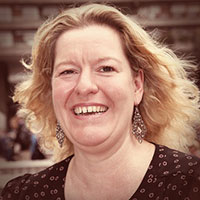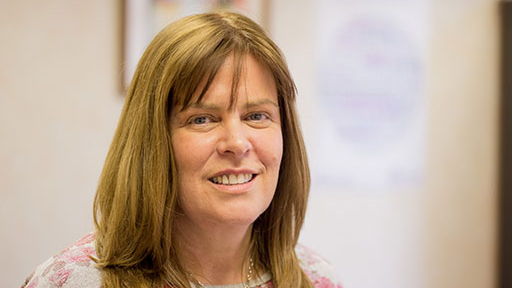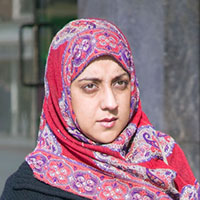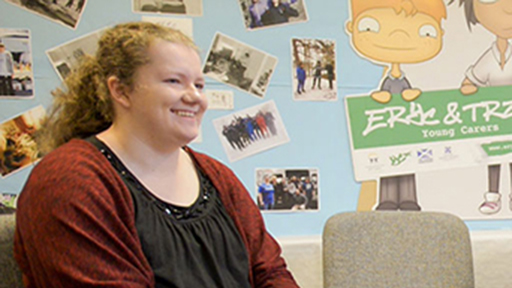Use 'Print preview' to check the number of pages and printer settings.
Print functionality varies between browsers.
Printable page generated Saturday, 14 February 2026, 11:41 PM
Session 4: Thinking about my learning path
Introduction

Carers and carers’ organisations tell us that there are different reasons for carers choosing to study.
You may have an immediate wish to find out more about a health-related condition relevant to the person you are caring for, or like many carers, your main motivation for choosing a course might be to enjoy some precious time for yourself.
A change in circumstances may mean that the time is now right for you to think about returning to work, or resuming studies that have been put on hold, or even to change direction completely. This could involve building on the knowledge and skills you’ve gained from caring and thinking about studies that lead to care-related employment. Or you might want to start something completely new.
This session draws on the experiences of individual carers to illustrate different motivations for study and learning paths. To whet your appetite we introduce you to a range of free online courses available on The Open University’s website OpenLearn.
We conclude the session by showing you how you can move from one level of study to another. Session 5 will take you further by looking at learning paths in terms of career destinations.
Learning outcomes
After working through this session you will have:
an idea of the directions carers might like to go in
an idea of what it is possible for carers to achieve in their immediate future
an understanding of the learning options open to carers
an idea, or ideas, about possible learning paths
as a learner, how to go about finding out what you need to know
the ability to use the internet to find information useful to you.
Where do I start?
In this section you will hear carers from very different backgrounds and circumstances talking about their motivations for study.
Your own starting point for study will depend on many things: your personal circumstances, previous educational qualifications, the length of time away from formal education or training, and opportunities for accessing the courses that interest you. To get you started we have provided links to free online courses at a range of levels. Some are very short (just 5 minutes) and others are longer. You can look at them whenever you want to, start and stop them as you wish, just dip in and out. There are no quizzes or tests and no assessments. All you will need is a way of accessing the internet. You could even use your phone, a tablet or an e-reader.
These courses are all from The Open University’s OpenLearn website. Many include free extracts from Open University course materials at different levels so they will give you a taste of what a more formal Open University course would be like.
We have grouped a selection of courses into three thematic areas:
- health-related conditions
- something for me: making my caring experience count
- something completely different.
When you’ve had a look through, you can capture your ideas in Activity 4.1.
Health-related conditions
You might be interested in learning about something that’s linked to the person you care for. In the example below, Sandra successfully passed The Open University access course, Y183 Starting with Psychology, and moved on to study DSE141 Discovering Psychology and DD131 Introducing the Social Sciences – Part One at undergraduate level. As well as being something ‘just for her’, she feels these courses helped her gain a better insight into her son’s condition.
Sandra

Sandra, 47, is a qualified nurse but because of her own health problems she isn’t currently able to work in nursing. She cares for her teenage son who has Asperger syndrome. At first she felt selfish making time for herself to study psychology, but she found that it has given her the energy to cope with her demanding roles and has helped her understand her son’s condition so that she is better able to support him. She has found that returning to study has been a crucial part of regaining her sense of herself.
Read about Sandra’s reasons for studying psychology:
The degree I have is great for nursing, but I felt that I needed to be challenged because I spent all my time with my son.
I fill my time with things for my son, so this is where I get to do things for myself … my son has so many needs it was easy to lose myself in his needs.
That’s why I started studying at The Open University, because I felt I was beginning to lose my sense of identity. I felt that I was so involved in caring for my son, that I no longer had time for me. I no longer had time to stretch myself, even just to do something for myself.
The psychology degree really interests me because it is making me think about what makes people tick and, for me especially, it helps me to understand how my son thinks.
I understand my son so much better and myself so much better. I suffer from clinical depression and the psychology course has been really cathartic.
The thought I had when I first started was that it felt a bit selfish to be doing this, but that’s gone now, and I really found that this is purely for me – this course that I’m doing – and it’s really good.
And one thing I enjoy is going to our local coffee shop with my books and having a hot chocolate and studying there for an hour. It gives me the energy then to cope with caring because I’ve managed to do something that’s totally away from that.
I’ve developed skills through persevering through caring … As much as my son has developed social skills and such like I think I have learned skills as well, like coping skills and perseverence.
Because I’ve become resilient, even when the course became hard and I felt like, ‘I can’t do it’, I actually managed to keep going with it.
Sandra chose to study psychology as a personal challenge that gave her time for herself. The fact that this gave her a greater understanding of her son’s perspective was a bonus. She enjoys her time studying and realises that this time for herself helps her cope with her caring role.
Perhaps you’d like to know more about a particular health-related condition, such as dementia or diabetes? The courses Sandra studied are no longer available but if you are interested in these topic areas new, complementary courses include the access course Y032 People, work and society, DE100 Investigating psychology 1 and DD102 Introducing the Social Sciences. In addition here is a selection of courses on OpenLearn that are concerned with health-related conditions.
Something for me: making my caring experience count
Perhaps you’d like to explore other areas of caring, maybe gain a perspective on what it means to work in social work or health and social care?
Naomi

Naomi is 24 and is a single parent. She left school at 15 with no qualifications and before having her daughter she worked in call centres. Her daughter, who has just started school, is visually impaired because she has albinism. Caring for her daughter has changed Naomi’s ambitions and she has decided she would like to develop a career in social work.
Naomi has started K101 An introduction to Health & Social Care, which is an overview of health and social care and an introduction to learning in higher education.
We will look further at Naomi’s learning and career path in Session 5.
Here is a selection of courses on OpenLearn that are concerned with the bigger picture of caring in our society.
Something completely different
Taking up something new, be it studying or any other activity, doesn’t have to be all about employment or related to your role as a carer. Doing something that’s just for you is important. Making time for yourself and doing something that you really enjoy can help you to relax, de-stress and make you feel good about yourself.
In this section you’ll hear carers talking about the benefits of choosing to do ‘something for me’.
First listen to Gillian and then read about Hedar talking about their study choices.
Gillian
Gillian (54) is the training coordinator at her local carers centre. She works part time and is still very involved in caring for her family. She has three sons, two of whom have a genetic learning disability. Her first experience of returning to studying and working was with her local carers centre, where she took part in an Open University course looking at ‘make your experience count’. Completing this course gave her the confidence to apply to work at the centre. Since then she’s chosen to study something just for her – maths.
Here Gillian talks about how she chose to study something completely unrelated to her job or her caring role. Gillian talks about why she chose to study maths.

Transcript
Hedar
Hedar, 45, has lived in Glasgow for five years, and cares for her father and her sister. Hedar and her family are refugees from Iraqi Kurdistan. Hedar’s father and sister have disabilities and her father also has dementia. Hedar is their full-time carer. Hedar has chosen not to make use of external caring support currently and chose distance learning as a way to create time and space for herself while caring at home.

Read why Hedar finds distance learning so rewarding.
I’m a person who can’t go out a lot. I don’t have the chance to attend colleges or universities and I don’t have a social life. I have lots of health problems. Sometimes I get depressed. So The Open University is the best thing for me.
I like to be busy inside the house, trying to overcome the depression, to overcome the sadness and all the things that happened to me, so I work … I do housework in the morning as much as I can and look after Dad and my sister. And then after 8 o’clock I start working on my Open University assignments.
My way of thinking is completely different than it was before. I feel I can think deeper, understand things easier. These things make me happy because I feel I’m improving myself. I’m improving my brain, doing something for my brain.
I can do everything at home. I can use the computer, I can communicate with my tutors, I can explore things easily and things are very useful with the Open University. Very rewarding … for a person like me very rewarding.
Hedar chose distance learning as a way to create time and space for herself while at home, and over the course of her study she’s gained an Open University degree.
Choosing something completely different
Click on a subject area to find out about some of the courses available on OpenLearn. To return to this page, click on the back button of your browser and continue.
[Tip: hold Ctrl and click a link to open it in a new tab]
Support for learning
For some of you ‘something for me’ might mean joining a carers group. [See Websites in the Resources section at the end of this course for more information about carers organisations.] For example, the young adult carers in Renfrewshire have a social group that meets fortnightly. They take part in a range of activities, learning together and supporting each other in their caring roles. Joining a support group may just be about having fun with people who understand the challenges in your life.
Clair, a young adult carer in Renfrewshire, comments about what she gains from being part of the young adult carers group.
Everyone needs a break from their emotions, you know just to kind of sit and have a laugh and a chat with someone, get it all out, you know.
Listen to young adult carers Clair, Jade and Scott talking about how they support each other.

Transcript
Group discussion
Are you thinking about taking up something that’s ‘just for me’? Perhaps you would like to join a group, meet new friends, or study something that’s just for you.
Activity 4.1
Activity 4.1 Thinking about something for me
Having read about and listened to carers talking about their learning choices, and having browsed the online courses, think about what you might like to learn and why.
If you are not thinking about a specific course are there other things you might be interested in doing?
Are you part of a carers group?
Go to Activity 4.1 in your Reflection Log. Once you have completed the activity make sure you save the document again.
Or you can use the table in this document but don’t forget to save it.
Alternatively, don’t forget you could search magazines or the internet for text and images of things that you’d like to do and compile them into a collage or montage.
Learning paths
If you enjoy a free OpenLearn course you might like to do another one or take on a different challenge.
Your actual starting point might vary depending on your previous educational experience and qualifications, time spent away from formal study, and your level of confidence.
Another helpful route through OpenLearn is to use the online guide, Open Pathways to Higher Education, produced by The Open University in Scotland. The guide is for learners navigating their journey through the free resources on OpenLearn and on to formal learning if they wish. There are three subject pathways – Arts and Languages; Science, Maths and Technology; and People, Work and Society – that learners can choose to work through at their own pace. (Please note that only learners living in Scotland are able to obtain the hard copy of this guide.)
From informal to formal learning
Informal learning usually refers to the learning that takes place through our daily activities in everyday life. Sometimes this learning is intentional learning but often it is not. It is knowledge we come by and skills we develop through experience. For example, learning how to cook or sew at home, or perhaps mechanical knowledge to do with car maintenance. We are all very knowledgeable in a wide range of ways.
Formal learning typically is provided by an educational institution or training provider. It is structured in terms of specific learning objectives and is usually accredited, levelled and credit-rated – for example, against the Scottish Credit and Qualifications Framework (SCQF). It takes place in schools, colleges, higher education institutions and other educational or training providers. It also includes formal study through distance learning courses, workplace training courses and professional qualifications.
Informal learning refers to community-based adult education courses, or perhaps non-accredited leisure courses and ‘lifelong learning’ evening classes not related to a formal progression route or qualification. It would include non-credit bearing continuing professional development courses. Free online courses on OpenLearn (including this reflection and planning course), which you engage with in your own time and at your own pace, are further examples.
Many colleges and higher educational institutions run especially designed access courses and summer schools to help adults who may have been away from formal study for some time, or who may not have the appropriate entry qualifications, prepare for study at higher education level. Such courses, like the OU Access to Success courses, help people gain confidence, brush up on learning skills, and act as a bridge from informal to formal learning.
The circle below shows four ways you can get started with learning with The Open University. You can start with a free taster course on OpenLearn and work your way towards a level 1 undergraduate course by taking an Access module as an interim step. But you can start anywhere – jump straight into an Access course, or if you’d like to get a feel for what that might be like, try out a pre-access course online. If you already have experience of studying at a higher education level you might be ready to start with a level 1 course right away.
Follow the links in the circle to explore the courses that are available. To return to this page, use the back button on your browser.
[Tip: hold Ctrl and click a link to open it in a new tab]
Mapping learning paths
You may already have some qualifications, in which case you might find it useful to think about how different qualifications relate to each other.
For example, the Scottish Credit and Qualifications Framework (SCQF) shows the relationship between the many qualifications and learning programmes in Scotland. It provides a common language for all types of learning whether it is formal, non-formal or informal. The framework helps you understand and compare qualifications by clarifying entry and exit points. This all helps you plan your learning path.
| SCQF level | SQA National Units, Courses and Group Awards | Higher education in the university sector | Higher education in the Scottish Colleges | Scottish Vocational Qualifications |
| 12 | Doctorates | |||
| 11 | Masters | SVQ 5 | ||
| 10 | Honours degree Graduate diploma | |||
| 9 | Ordinary degree Graduate certificate | |||
| 8 | Diploma in Higher Education | Higher National Diploma (HND) | SVQ 4 | |
| 7 | Advanced Higher | Higher National Certificate (HNC) | ||
| 6 | Higher | SVQ 3 | ||
| 5 | Intermediate 2 Credit Standard Grade | SVQ 2 |
The SQA has other ways of comparing and explaining the range of formal qualifications available in Scotland that you might find helpful: http://www.sqa.org.uk/ files_ccc/ readyreckoner.html.
For further information about a specific course, contact your local college or university, or visit The Open University in Scotland website. For information about career paths see useful websites in the Resources section at the end of this course.
Summary
In this session, you explored a range of learning opportunities and thought about what other activities you might like to get involved in. In the next session you will explore learning paths linked to employment and careers.
Acknowledgements
This course was written by Lindsay Hewitt, Sarah Burton and Julie Robson.
Except for third party materials and otherwise stated (see terms and conditions), this content is made available under a Creative Commons Attribution-NonCommercial-ShareAlike 4.0 Licence.
The material acknowledged below is Proprietary and used under licence (not subject to Creative Commons Licence). Grateful acknowledgement is made to the following sources for permission to reproduce material in this unit:
Images
Figure 4.1: alexsl/iStockphoto.com
Figure 4.2: © The Open University/Library image (model image only)
Figure 4.3: © The Open University/Library image (model image))
Figure 4.4: http://www.johnbirdsall.co.uk/ (model image only)
Every effort has been made to contact copyright owners. If any have been inadvertently overlooked, the publishers will be pleased to make the necessary arrangements at the first opportunity.
Don't miss out:
1. Join over 200,000 students, currently studying with The Open University – http://www.open.ac.uk/ choose/ ou/ open-content
2. Enjoyed this? Find out more about this topic or browse all our free course materials on OpenLearn – http://www.open.edu/ openlearn/
3. Outside the UK? We have students in over a hundred countries studying online qualifications – http://www.openuniversity.edu/ – including an MBA at our triple accredited Business School.